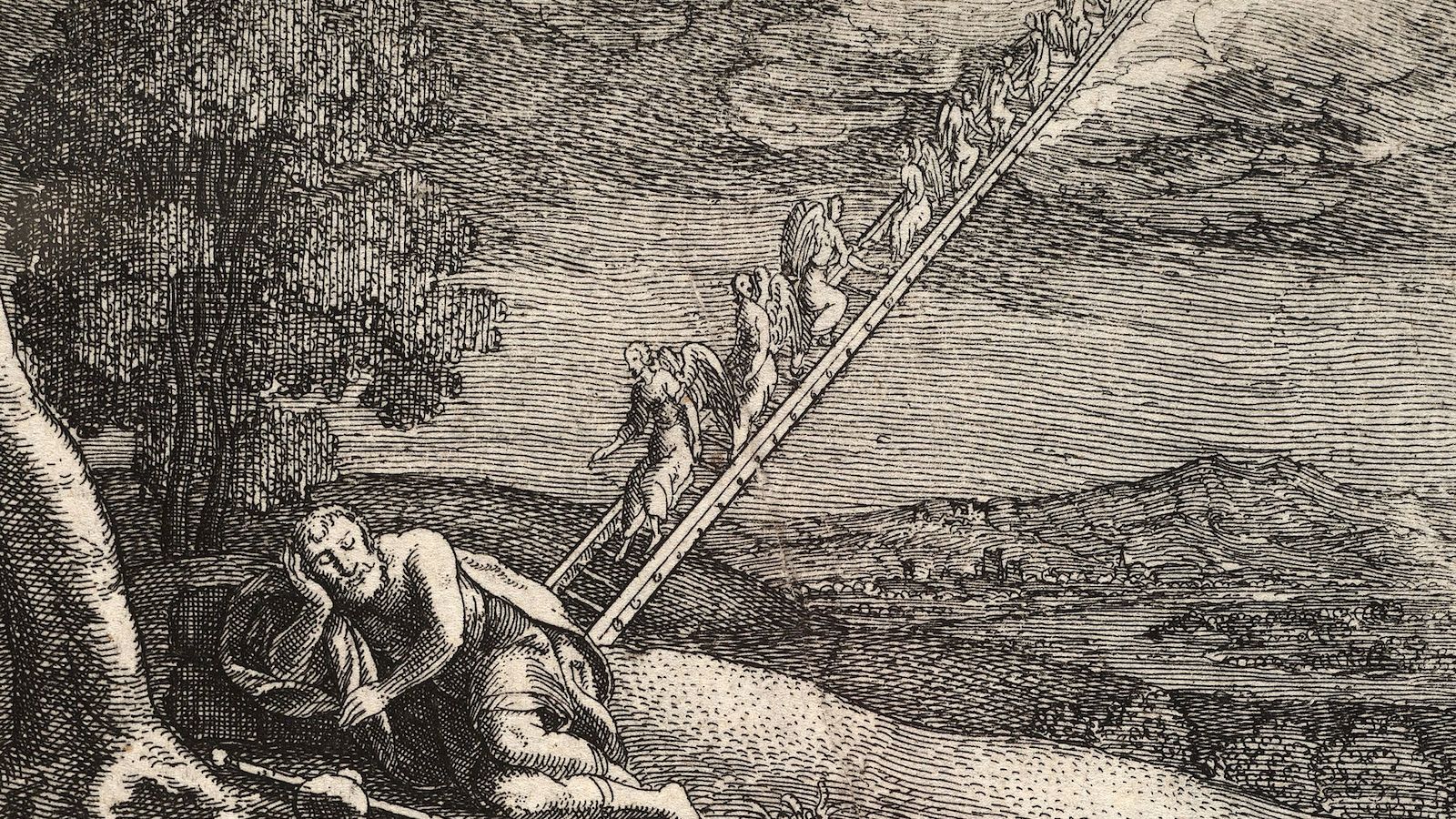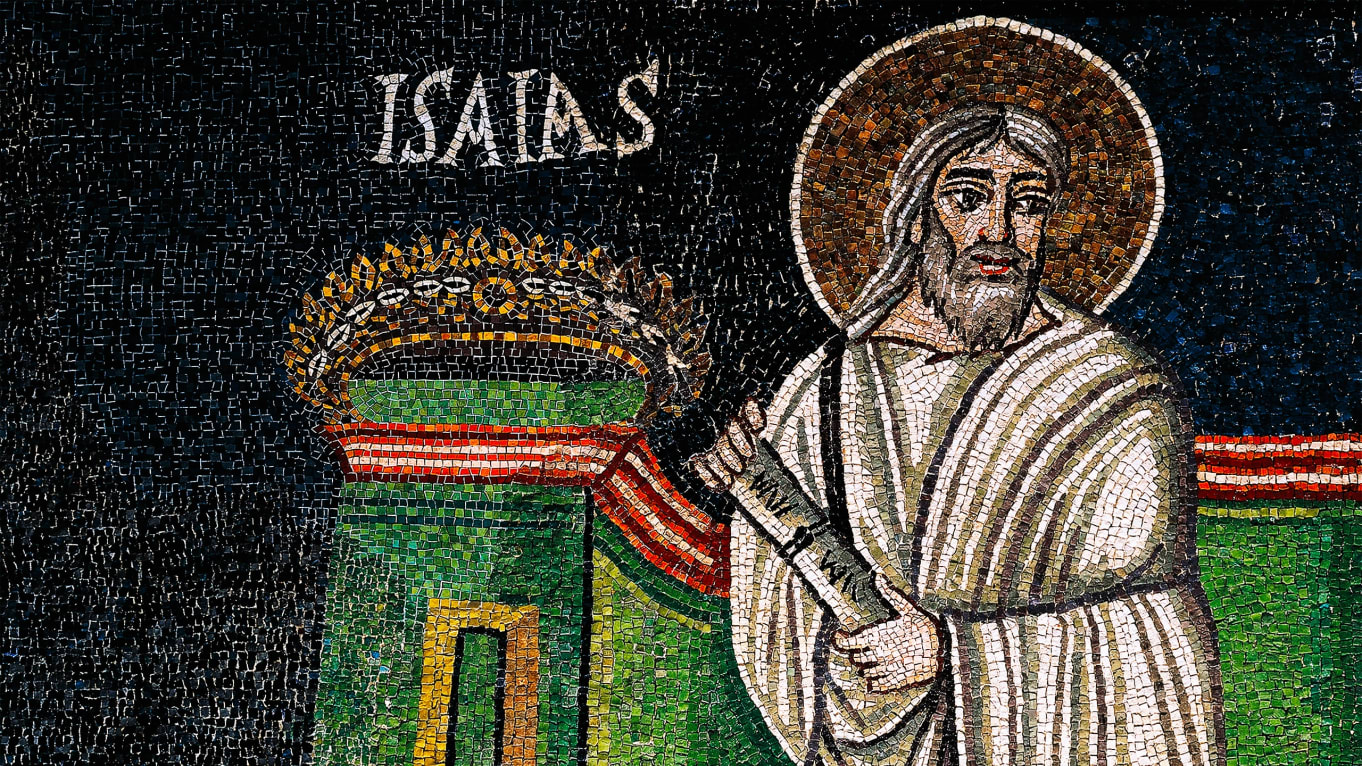"'Hear another parable. There was a master of a house who planted a vineyard and put a fence around it and dug a winepress in it and built a tower and leased it to tenants, and went into another country. When the season for fruit drew near, he sent his servants to the tenants to get his fruit. And the tenants took his servants and beat one, killed another, and stoned another. Again he sent other servants, more than the first. And they did the same to them. Finally he sent his son to them, saying, They will respect my son. But when the tenants saw the son, they said to themselves, This is the heir. Come, let us kill him and have his inheritance. And they took him and threw him out of the vineyard and killed him. When therefore the owner of the vineyard comes, what will he do to those tenants?' They said to Him, 'He will put those wretches to a miserable death and let out the vineyard to other tenants who will give him the fruits in their seasons.' Jesus said to them, 'Have you never read in the Scriptures: The stone that the builders rejected has become the cornerstone; this was the Lord’s doing, and it is marvelous in our eyes? Therefore I tell you, the kingdom of God will be taken away from you and given to a people producing its fruits. And the one who falls on this stone will be broken to pieces; and when it falls on anyone, it will crush him.'"
Wednesday, June 30, 2021
The Parable of the Tenants and the Deity of Christ
"'Hear another parable. There was a master of a house who planted a vineyard and put a fence around it and dug a winepress in it and built a tower and leased it to tenants, and went into another country. When the season for fruit drew near, he sent his servants to the tenants to get his fruit. And the tenants took his servants and beat one, killed another, and stoned another. Again he sent other servants, more than the first. And they did the same to them. Finally he sent his son to them, saying, They will respect my son. But when the tenants saw the son, they said to themselves, This is the heir. Come, let us kill him and have his inheritance. And they took him and threw him out of the vineyard and killed him. When therefore the owner of the vineyard comes, what will he do to those tenants?' They said to Him, 'He will put those wretches to a miserable death and let out the vineyard to other tenants who will give him the fruits in their seasons.' Jesus said to them, 'Have you never read in the Scriptures: The stone that the builders rejected has become the cornerstone; this was the Lord’s doing, and it is marvelous in our eyes? Therefore I tell you, the kingdom of God will be taken away from you and given to a people producing its fruits. And the one who falls on this stone will be broken to pieces; and when it falls on anyone, it will crush him.'"
Wednesday, June 23, 2021
The Voices in Their Heads Are Not God
False teachers avoid accountability to the Scriptures by claiming that they received their false doctrines directly from God. That is why He warned us in advance: "Even if we or an angel from heaven should preach to you a gospel contrary to the one we preached to you, let him be accursed. As
we have said before, so now I say again: If anyone is preaching to you a
gospel contrary to the one you received, let him be accursed" (Galatians 1:8-9).
Tuesday, June 22, 2021
Pride in Hating God
"You adulterous people! Do you not know that friendship with the world is enmity with God? Therefore whoever wishes to be a friend of the world makes himself an enemy of God."
- James 4:4
As I write this, it is June, "Gay Pride Month." Every politician and every big corporation is flying Pride flags or posting them on their advertising. This has all happened in my lifetime. I was born before the so-called Stonewall Rebellion. Now people who were considered criminals have public streets closed to traffic so that they can show their pride and wedding rings. My member of Congress and state Senator post about supporting "equality," without specifying what rights straight people have that gay people don't.
That is why I started this post with the Bible verse above. The politicians and corporations are advertising their association with the God-haters. The same people will advertise in the Fall for Christmas, the holiday which was once considered a celebration of the birth of Jesus. Not anymore. There is even a children's show on public TV which has a special episode for "winter solstice." Neither Jesus nor Christmas are mentioned, lest they offend. Whom? I don't know. But why are they worried about offending that person while being OK with offending me?
In addition to James, there is another Bible verse which describes today's America: "Woe to those who call evil good and good evil, who put darkness for light and light for darkness, who put bitter for sweet and sweet for bitter! Woe to those who are wise in their own eyes, and shrewd in their own sight!" (Isaiah 5:20-21). We have exchanged God's standards for good and evil and substituted those of a particular perspective among men. And what is God's warning about that exchange? "Woe!"
Saturday, June 19, 2021
Psalm 102 on Christ the Creator
"Of old You laid the foundation of the earth,
and the heavens are the work of Your hands.
They will perish, but You will remain;
they will all wear out like a garment.
You will change them like a robe, and they will pass away,
but You are the same, and Your years have no end.
The children of Your servants shall dwell secure;
their offspring shall be established before You."
- Psalm 102:25-28
These verses describe God as the creator of the physical universe. Yet that universe, under the curse of the Fall, is shriveling under the assault of entropy. Even as we see that, however, we have the assurance that God is subject to no entropy, but remains in His divine power and glory forever.
But there is something else interesting about these verses. In Hebrews 1:10-12, they are explicitly referred to the Son, i. e., Jesus. It is He who is our unchanging divine Creator. This is not to deny the respective roles of the Father and the Holy Spirit; they are simply not the focus here.
It is the Son who is given all of the attributes of full deity, and, as such, the basis for the salvation and eternal security of His church.
Wednesday, June 16, 2021
The False Righteousness of Men
"His own perfect work in Jesus Christ satisfies God. The one who believes only, declining to work for righteousness, comes to God lacking all justifying works, only guilty, wholly ungodly in the matter of righteousness, supplicating and magnifying the grace of God."
- Rev. David Engelsma, "Gospel Truth of Justification," pp. 193-4
In the comment above, Engelsma is paraphrasing several references in the Bible, such as Romans 5:6: "While we were still weak, at the right time Christ died for the ungodly." Jesus didn't come to purchase salvation for those who are moral, or who clean up their lives. Rather, he came to save the one who realizes how unclean he is, with nothing of himself to offer. As the Apostle Paul continues (verses 8-11): "God shows His love for us in that while we were still sinners, Christ died for us. Since, therefore, we have now been justified by His blood, much more shall we be saved by Him from the wrath of God. For if while we were enemies we were reconciled to God by the death of His Son, much more, now that we are reconciled, shall we be saved by His life. More than that, we also rejoice in God through our Lord Jesus Christ, through whom we have now received reconciliation."
We also have the words of Jesus Himself, describing His salvific purpose: "I have not come to call the righteous but sinners to repentance" (Luke 5:32). He is referring to those who are self-righteous, since "none is righteous, no, not one" (Romans 3:10). Since the Fall of Adam, no mere human being has any righteousness in himself by which to please God. All are sinners (Romans 3:23), under the well-deserved wrath of the thrice-holy God, as described above. Every act claimed by a man as his own righteousness is condemned by God, for "whatever does not proceed from faith is sin" (Romans 14:23).
Instead, we depend on the righteousness of Jesus, which is imputed to the believer the moment he believes: "For our sake He [i. e., the Father] made Him [i. e., Jesus, the Son] to be sin who knew no sin, so that in Him we might become the righteousness of God" (II Corinthians 5:21; see also Isaiah 26:12 and Hebrews 13:20-21).
There is an absolute contrast here: a person can depend on the good works that he imagines he does, and be damned; or he can condemn his own works as the wickedness that they are, under the wrath of God, and seek instead to receive forgiveness and righteousness by faith alone from Jesus alone, and be saved for eternal life.
Saturday, June 12, 2021
The Angel of the Lord, the Preincarnate God the Son
"Jacob left Beersheba and went toward Haran. And he came to a certain place and stayed there that night, because the sun had set. Taking one of the stones of the place, he put it under his head and lay down in that place to sleep. And he dreamed, and behold, there was a ladder set up on the earth, and the top of it reached to heaven. And behold, the angels of God were ascending and descending on it! And behold, the Lord stood above it and said, 'I am the Lord, the God of Abraham your father and the God of Isaac. The land on which you lie I will give to you and to your offspring. Your offspring shall be like the dust of the earth, and you shall spread abroad to the west and to the east and to the north and to the south, and in you and your offspring shall all the families of the earth be blessed. Behold, I am with you and will keep you wherever you go, and will bring you back to this land. For I will not leave you until I have done what I have promised you.' Then Jacob awoke from his sleep and said, 'Surely the Lord is in this place, and I did not know it.' And he was afraid and said, 'How awesome is this place! This is none other than the house of God, and this is the gate of heaven.'"
- Genesis 2810-17
This is a well-known and much-beloved passage. We even have a song based on it: "We are climbing Jacob's ladder." Notice that God is referred to both as "God" and as "Yahweh" ("Lord" in the quoted portion above). So Jacob professes, without correction, that Yahweh is his God.
Let us continue.
"Then the angel of God said to me in the dream, ‘Jacob,’ and I said, ‘Here I am!’ And He said, ‘Lift up your eyes and see, all the goats that mate with the flock are striped, spotted, and mottled, for I have seen all that Laban is doing to you. I am the God of Bethel, where you anointed a pillar and made a vow to Me.'" (Genesis 31:11-13).
In this later passage, Jacob is again visited. This visitor is identified as "the angel of God," but then He identifies Himself as "God," the same God and Yahweh who had visited Jacob in chapter 28. Therefore, the angel of God, called elsewhere the angel of the Lord or the angel of the covenant, is Yahweh, the God of Israel.
The comparison of these two passages proves three things, contrary to the claims of the anti-Trinitarians: first, it proves that Yahweh and the Angel of Yahweh are the same Person; second, it proves the preexistence of the Son; and third, it shows that Yahweh was the preexistent Son, in His mediatorial role. And if Yahweh is God, then the logical necessity is that the Son is God! Thus the claims of the Jehovah's Witnesses on one side and the Oneness sects on the other are shown to be false.
Wednesday, June 9, 2021
The Triunity of the Godhead in Isaiah
"I will recount the steadfast love of the Lord, the praises of the Lord, according to all that the Lord has granted us, and the great goodness to the house of Israel that He has granted them according to His compassion, according to the abundance of His steadfast love. For He said, 'Surely they are My people, children who will not deal falsely.' And He became their Savior. In all their affliction He was afflicted, and the angel of His presence saved them; in His love and in His pity He redeemed them; He lifted them up and carried them all the days of old. But they rebelled and grieved His Holy Spirit; therefore, He turned to be their enemy,and Himself fought against them."
- Isaiah 63:7-10
Depending on interpretation, there are either two divine Persons or three in this passage. Since I believe that the name Yahweh refers only to the Son, for whom "angel of His presence" is a circumlocution for that same Son. Thus, you can see the Son and the Holy Spirit here. However, if you view the Lord here as being the Father, the implication is even stronger, indicating three divine Persons.
Anti-Trinitarians think they are clever in the oft-repeated challenge: "If God is three Persons, then why don't we see them in the Old Testament?" And the fact is that we do see them. Granted, they aren't revealed as completely in the Old Testament, but that is the nature of the relationship between the two Testaments, with types and shadows in the Old, and the clarity of the direct view in the New. As the slogan goes, "The Old Testament is the New Testament concealed, while the New Testament is the Old Testament revealed." That we see the trinity obscured does not mean that it is unknown in the Old Testament.
Saturday, June 5, 2021
Justification and That Essential Four-Letter Word: Alone
"In teaching justification by faith alone, Calvin and the Reformed creeds, like Luther before them, are biblical. Not only does the Bible teach that justification is by faith, but it teaches also that justification is by faith alone. The Bible teaches justification by faith alone not by using the word alone, but by contrasting faith as the means of justification with the only alternative, namely, the works of the sinner. When, in its great passages on justification, the Bible affirms that justification is by faith and immediately adds that justification is not by works, the Bible teaches not only that justification is by faith, but also that justification is by faith alone. So clearly, purposefully, and decisively does the Bible thus teach justification by faith alone that alone is, in fact, in the text. It is in the text implicitly."
- Rev. David Engelsma, "Gospel Truth of Justification," p. 185, emphasis in original
When Martin Luther first translated the Bible into his native German he added the word "alone" to Romans 3:28: ""So halten wir nun dafür, dass der Mensch gerecht werde ohne des Gesetzes Werke, allein durch den Glauben" (Literally: "We therefore conclude that a man is justified without the works of the law, alone through faith"). Rome has accused him ever since of adulterating the verse. More recently, Mormons have repeated the accusation, and applied it to all orthodox Protestants who hold to Sola Fide, justification by faith alone.
As seen in the quote above, Luther might have added the word, but he did not add the concept. He merely made explicit what was already implicit. Not only is there nothing dishonest in doing so, but it is a common practice in translating. In fact, the King James Version used by the Mormons does it frequently (the words printed in italics). And Romanist translators have done it in preparing approved versions of the Scriptures. In other words, this is a painfully obvious case of the pot calling the kettle black!
Part of the reason that Engelsma felt compelled to make his comment so firmly is because of a creeping loss of the Reformation doctrine, even among those who profess to walk in the footsteps of the Reformers.
For example, in the Thirty-Nine Articles of Anglicanism (Church of England, Episcopal Church in the USA, etc.), number XI says, "Of the Justification of Man. We are accounted righteous before God only for the merit of our Lord and Savior Jesus Christ by faith, and not for our own works or deservings. Wherefore, that we are justified by faith only is a most wholesome doctrine, and very full of comfort..." "Only" appears twice in this one sentence, yet Anglican Theologian N. T. Wright says that the doctrine is an error, and adds works to his doctrine of justification.
Likewise, the Westminster Confession of Faith, the main doctrinal document of the world's Presbyterians, says (Chapter XI:1 and 2): "Those whom God effectually calleth, He also freely justifieth: not by infusing righteousness into them, but by pardoning their sins, and by accounting and accepting their persons as righteous; not for any thing wrought in them, or done by them, but for Christ’s sake alone; not by imputing faith itself, the act of believing, or any other evangelical obedience to them, as their righteousness; but by imputing the obedience and satisfaction of Christ unto them, they receiving and resting on Him and His righteousness by faith; which faith they have not of themselves, it is the gift of God. Faith, thus receiving and resting on Christ and his righteousness, is the alone instrument of justification..." Yet a movement among professing Presbyterians known as the Federal Vision denies the propriety of "alone," and, like Wright, claims a form of justification by faith mixed with works.
Such men are dishonest in their profession, pledging their commitment to their respective creeds, while denying such a fundamental doctrine. That is taking the Lord's Name in vain, and "the Lord will not hold him guiltless who takes His name in vain" (Exodus 20:7).








